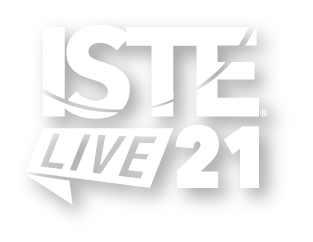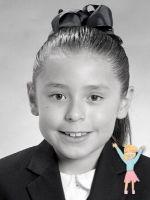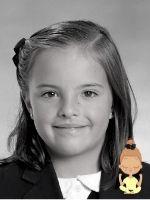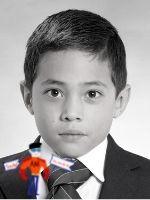

Pandemic Superheroes: Developing SEL Through Digital Storytelling and AR |
Participate and share : Poster
Sofía de la Mora Villareal Lorenza Dibildox Óscar Sánchez Monroy Regina Gonzalez de Cossio Camila Harp Pizá Vicente Pérez Avella
Learn how elementary students gave life to their own pandemic superheroes through digital storytelling and AR technology. Discover how their amazing superpowers have helped them face the multiple challenges posed by the COVID-19 pandemic.
| Audience: | Principals/head teachers, Teachers, Technology coordinators/facilitators |
| Skill level: | Beginner |
| Attendee devices: | Devices useful |
| Attendee device specification: | Smartphone: Android, iOS, Windows Tablet: Android, iOS, Windows |
| Topic: | Storytelling/multimedia |
| Grade level: | PK-5 |
| Subject area: | ESL, Language arts |
| ISTE Standards: | For Students: Empowered Learner
|
| Additional detail: | Student presentation |
As the ongoing COVID-19 Pandemic continues to challenge the way we learn and work, the development and fostering of social emotional skills could help us face these challenging times in a better way. It is no news that the coronavirus outbreak has caused major disruptions to daily life, however, what adults often ignore is that children are specially prone to feel these changes deeply. In this sense, children are likely to be experiencing strong emotions such as worry, anxiety and fear, or in some cases, they can even feel helpless and depressed.
In Mexico, schools have been closed since March and kids have lost that sense of structure and stimulation that was provided by their former routines. In addition, their social support has been reduced since they now have less opportunity to be with their friends and get the social interaction that is considered essential for good mental well-being. Sadly, no particular actions have been taken to foster SEL in Mexican children since the pandemic started, and children have continuously demonstrated along these months, how badly they need to learn to manage their emotions, feel and show empathy for others, set and achieve positive goals, maintain positive relationships, and make responsible decisions. Developing these abilites is not only relevant for guaranteeing good mental well-being and promoting healthy relationships. In fact, promoting SEL skills in children has also demonstrated to have a significant positive effect on their academic achievement. For example, according to a 2011 meta-analysis, those students who participated in evidence-based SEL programs showed an 11% point gain in academic achievement. In addition, promoting these skills in children has shown to decrease dropout rates, mental health problems, poverty, criminal behavior and school and classroom behavioral issues.
At Highlands International School Mexico we are aware of the benefits of SEL and have tried to actively respond to the great need to foster these abilities in our students, specially during the COVID-19 pandemic. Therefore, after becoming aware of their own emotions and thoughts, and discovering their fears and emotional needs, Mexican elemenatry students were asked to create pandemic superheroes with special social-emotional superpowers to help them develop these skills and therefore, be able to better face these uncertain times. Throughout this project, students developed self-awareness, as well as self-management strategies to learn to cope with stress, control their impulses and stay motivated. All of these became in turn, the superheroes´ superpowers. Students also worked on their communicative skills, creativity, critical thinking, decision making and collaborative skills during the realization of this project.
Join this inspiring session to witness how these creative young Mexican students, through the use of technology and AR, applied their ESL and literacy skills to design original superheroes with special social-emotional superpowers to help them recognize their emotions and develop self-management strategies. Learn how they created original digital books that illustrate and tell how these superheroes can help other children like them to face everyday challenges during the COVID-19 pandemic. Discover how, by becoming innovative designers and creative communicators, these students were able to make their heroes come alive to share them with their community and inspire other kids to develop these important skills.
The main purpose and objectives for this presentation are:
- To share the development of a project that addresses children’s social-emotional needs derived from the COVD-19 pandemic.
- To prove how Digital Storytelling and Augmented Reality can become powerful tools for students and educators to address the development of social-emotional skills.
- To share students’ creativity when applying ESL and multiple literacy skills to create stories that exemplify social-emotional skills and strategies that can help them face uncertain times and have, at the same time, a positive impact on their academic and behavioral outcomes.
- Robin, B. (2008) Digital Storytelling: A Powerful Technology Tool for the 21st Century Classroom, Theory Into Practice, 47:3, 220-228.
-https://casel.org/what-is-sel/
- Robin, B. & Pierson, M. (2005). A Multilevel Approach to Using Digital Storytelling in the Classroom. In C. Crawford, R. Carlsen, I. Gibson, K. McFerrin, J. Price, R. Weber & D. Willis (Eds.), Proceedings of SITE 2005--Society for Information Technology & Teacher Education International Conference (pp. 708-716). Phoenix, AZ, USA: Association for the Advancement of Computing in Education (AACE). Retrieved September 27, 2019 from https://www.learntechlib.org/primary/p/19091/.
- Yilmaz, R.M. & Goktas, Y. (2017). Using augmented reality technology in storytelling activities: examining elementary students’ narrative skill and creativity. Virtual Reality 21, 75–89.
- https://www.digitales.us/digital-storytelling/
- Durlak, J. A., Weissberg, R. P., Dymnicki, A. B., Taylor, R. D., & Schellinger, K. (2011). The impact of enhancing students’ social and emotional learning: A meta-analysis of school-based universal interventions. Child Development, 82, 405-432.




Regina González de Cossío is a young Mexican neuropsychologist, passionate educator and technology enthusiast. She began her career in education five years ago, teaching science and ESL in second and fourth grade at a private Catholic school in Mexico City where she witnessed how technology can empower students to build their own knowledge and encourage them to create. As an educational innovation specialist at Highlands International School Mexico in Mexico City, she strives to create an innovative culture that fosters authentic and personalized learning. She conducts research and guides and measures the implementation of innovative learning methodologies and state-of-the-art technology with the school community, thus crafting creative solutions to everyday challenges such as remote learning. She also facilitates training events for staff, and enjoys coaching and empowering teachers so they can better integrate innovative practices into their classrooms to promote meaningful learning experiences. She loves to ignite creativity in teachers and students, is committed to enhancing cooperative learning and is currently making global connections to create an intercultural collaborative learning network. González de Cossío holds a bachelor's degree in neuropsychology and two two master's degrees in neuroscience and neuroeducation from Universidad Complutense de Madrid. She’s also a certified Apple Teacher.


Cultivating a Culture of Computational Thinking
Developing a Designer’s Mindset — the Design Abilities in Action
Ditch That Copier: The Versatile World of Sketchnotes